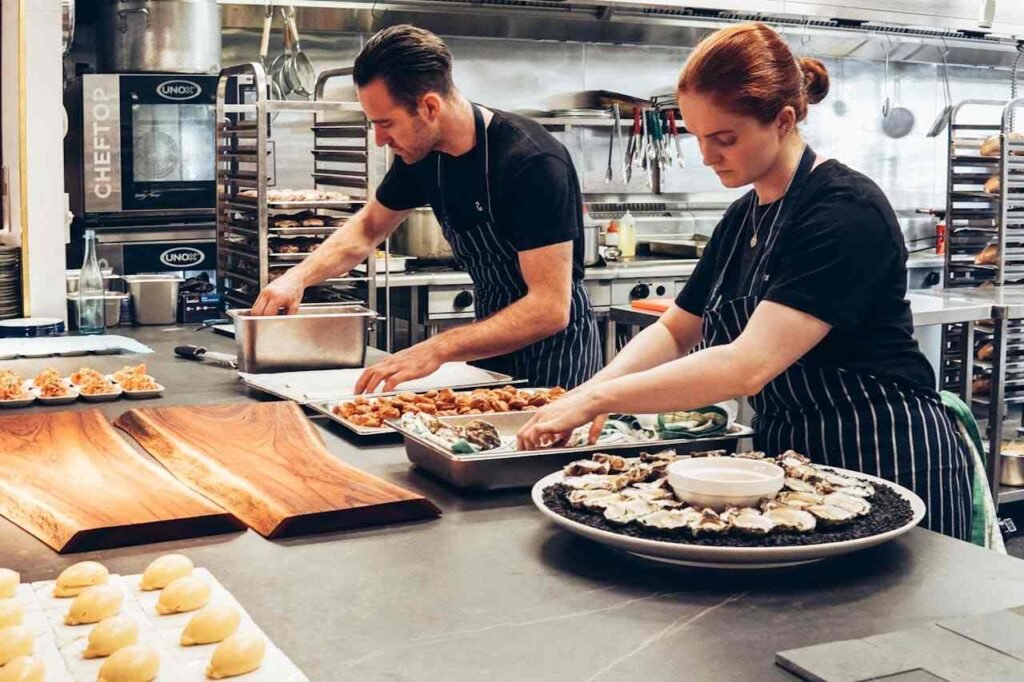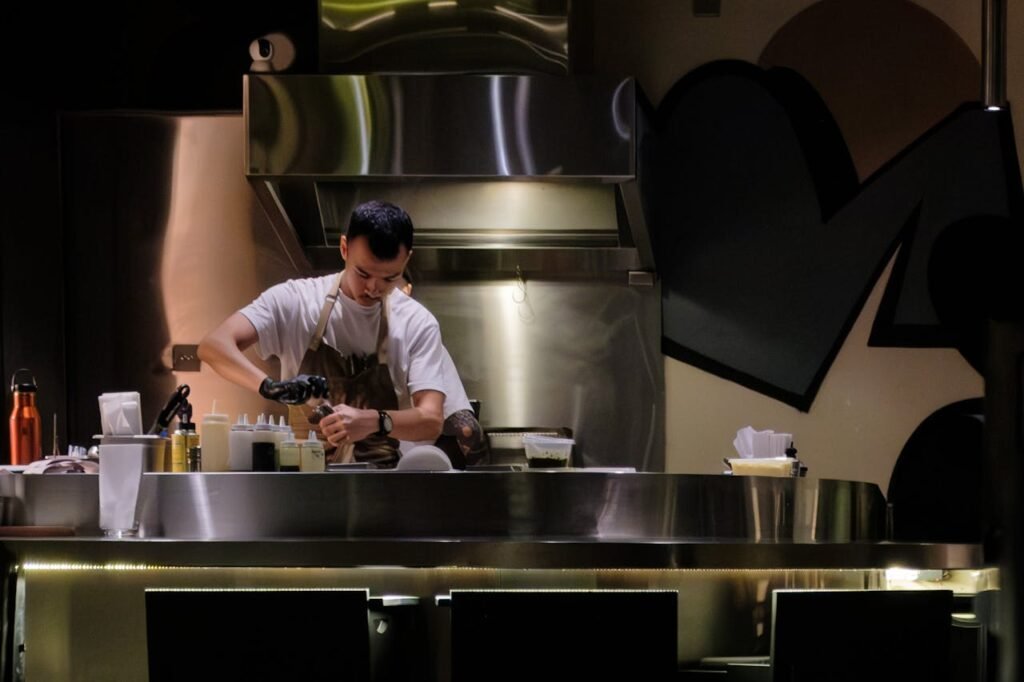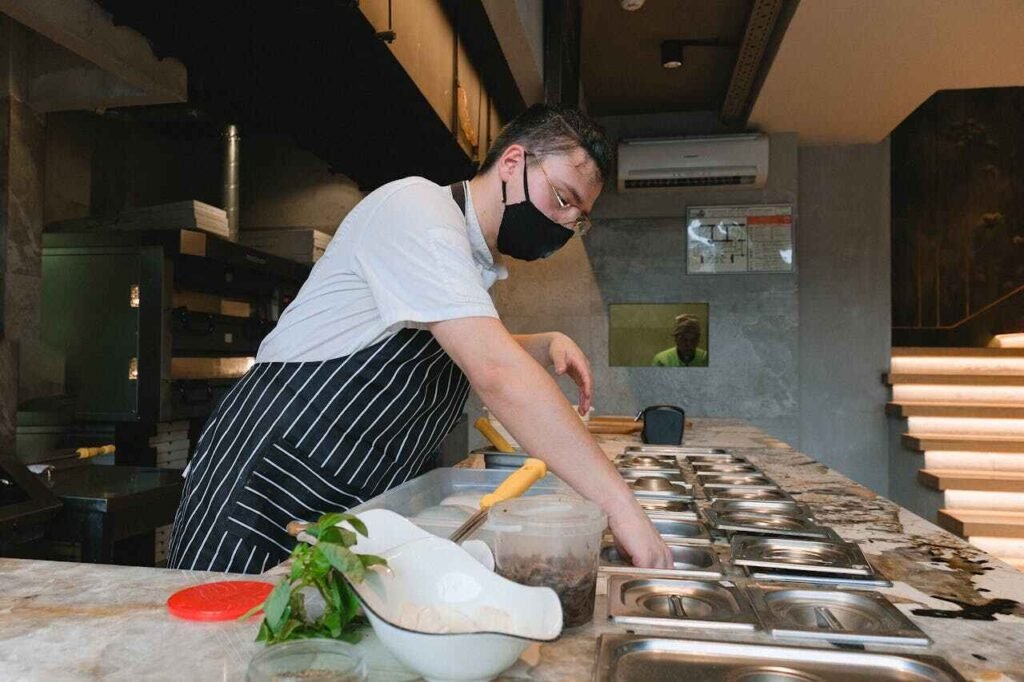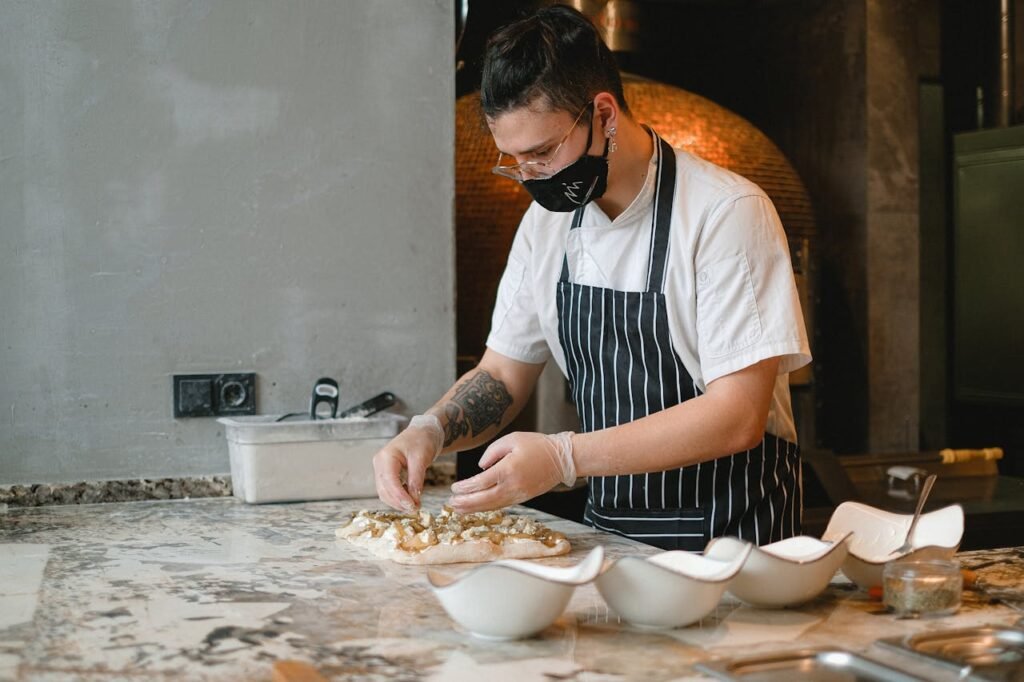
Learn India’s top and Best culinary arts school
Culinary Arts. Take a look at our wide range of programmes, knowledgeable instructors, and cutting edge facilities before starting your ground breaking culinary education adventure.
Culinary arts, the art of cooking and food production, is a skill that requires creativity, precision, and passion. At NFCI institute, we take pride in offering a comprehensive culinary arts program that prepares students for a successful career in the food industry.
From kitchen to plate, our students are given the opportunity to explore a wide range of culinary delights and hone their skills under the guidance of experienced chefs.
The journey begins in our state-of-the-art kitchen facilities, where students learn the fundamentals of cooking techniques, food safety, and kitchen management.
Through hands-on training and interactive classes, they gain a deep understanding of ingredients, flavors, and culinary traditions from around the world. From mastering the art of knife skills to creating intricate dishes, our students are equipped with the knowledge and skills needed to excel in the fast-paced and dynamic culinary industry.
As students progress through the program, they have the opportunity to experiment with different cuisines, ingredients, and cooking styles.
Whether it’s learning the art of French pastry-making, perfecting the art of sushi rolling, or mastering the techniques of molecular gastronomy, our students are encouraged to push the boundaries of their creativity and culinary skills. They also have the chance to collaborate with their peers, participate in cooking competitions, and showcase their culinary creations to a wider audience.
At best hotel management institute in india, we believe that the journey from kitchen to plate is not just about preparing delicious meals, but also about creating memorable dining experiences for customers.
Our students are taught the importance of presentation, plating, and customer service, ensuring that they are well-rounded professionals who can excel in any culinary setting. Whether they choose to work in a restaurant, hotel, catering company, or start their own food business, our graduates are well-prepared to succeed in the competitive and ever-evolving food industry.
Reviving the Craft of Prehistoric Food Preparation

A developing trend in today’s world of processed and mass-produced food is artisanal food manufacturing, which aims to bring back classic gastronomic delights. This approach promotes small-scale producers and local communities in addition to honoring the diverse cultural legacies of the various locations.
Adopting Regional Ingredients and Methods

Culinary arts uses locally sourced ingredients and traditional techniques, preserving biodiversity and supporting local farmers. For instance, in Tuscany, artisans create pecorino cheese using local sheep milk, using age-old methods like handcrafting and aging in natural caves, showcasing regional culinary traditions.
Maintaining Real Tastes and Recipes

The goal of Culinary arts is to maintain true flavors and recipes that the contemporary food industry may lose. Communities can re-establish a connection with their cultural heritage and provide customers with a taste of the past by bringing back beloved culinary traditions.
Encouragement of Regional Communities and Rural Economy

Since Culinary arts creates new jobs and revenue streams, it is essential to the revitalization of rural communities. These initiatives support the development of a resilient and sustainable economy that benefits both producers and customers by emphasizing locally made goods.
Encouraging Communication Between Manufacturers and Customers
A closer relationship between producers and consumers is facilitated by Culinary food Production, which increases supply chain transparency and consumer confidence. Customers are able to comprehend the source of their food, the processes involved in its production, and the people who make the goods they buy thanks to this direct interaction.
For example, there is a renaissance of traditional bakeries in France that use locally sourced flour and traditional baking techniques to produce bread. These bakeries frequently feature an open kitchen concept that lets patrons watch and engage with the bakers while they make bread. A sense of trust and admiration for the skill required in making traditional bread is fostered by this transparency.
Restoring Pride and Cultural Heritage
Culinary food production contributes to the preservation of cultural heritage and fosters a sense of community pride by bringing back traditional gastronomic delights. By showcasing their distinctive culinary practices and rituals, these communities are able to forge a feeling of identity and community.
The traditional method of preparing soya sauce has been passed down for years in Japan. Some craftspeople still make soya sauce today with the same ingredients and techniques as their forefathers. In addition to maintaining a historic trade, these craftsmen are advancing Japanese culture globally because soy sauce is now a common ingredient in many cuisines.
In conclusion
culinary arts is a dynamic and rewarding field that offers endless opportunities for creativity and innovation. At NFCI HOTEL MANAGEMENT & CULINARY INSTITUTE IN INDIA, we are committed to providing our students with the knowledge, skills, and experience they need to thrive in the culinary world. From kitchen to plate, we invite you to join us on this exciting culinary journey and explore the endless possibilities of the culinary arts.





